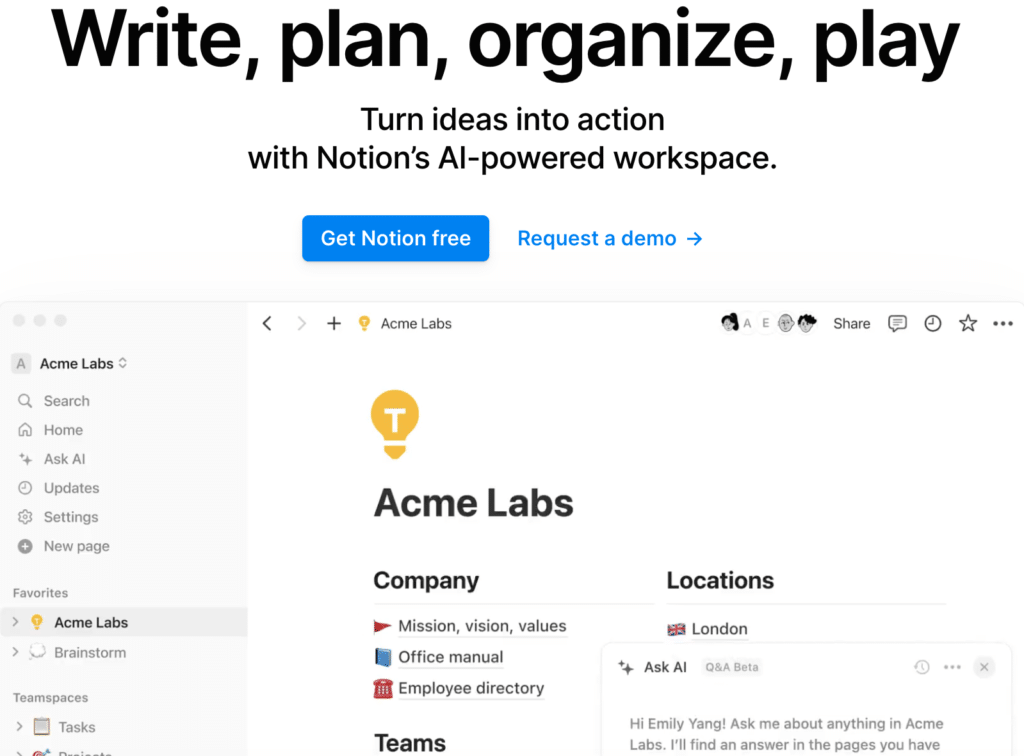To excel in freelance marketing consulting, you need to know the digital world well. You should also use many kinds of marketing strategies and always improve your skills. My journey as a freelance marketing consultant showed me how important it is to be flexible, keep learning, and stay up-to-date with digital marketing trends. These things have been key to my success, helping businesses grow online.
If you’re interested in freelance marketing and want to be known as a great digital marketing consultant, keep reading.
Key Takeaways
- Embrace the digital marketing evolution to succeed as a freelance marketing consultant.
- Learn a broad set of digital marketing skills, including social media and email marketing.
- Engage actively with the marketing community to continuously enhance your expertise.
- Specialize in niche markets to tailor your marketing consultancy effectively.
- Build a powerful online presence to showcase your skills & attract potential clients.
- Utilize networking to establish valuable industry connections and augment your reputation.
- Prioritize adapting pricing strategies and services to meet market demands and client expectations.
A Day in the Life of a Freelance Marketing Consultant
As a newbie entering the world of freelance marketing consultancy, it’s essential to understand what a typical day looks like for professionals in this field. A freelance marketing consultant’s day is dynamic and filled with various tasks that require a combination of creativity, organization, and strategic thinking.
Morning Routine and Planning
My day usually begins with a cozy ritual of making coffee and setting the work tone for the day. Many freelance marketing consultants start their mornings by planning out their working hours. This involves scheduling client work, content creation tasks, client meetings, and administrative duties using tools like structured apps to stay organized and productive.
Work Tasks and Client Management
Throughout the day, freelance marketing consultants work on a variety of tasks for their clients. This can include creating marketing strategies, content development, social media management, client communication, and project planning. Managing client expectations, delivering quality work, and meeting deadlines are crucial aspects of the job.
Tools and Efficiency

Discovering and utilizing tools that enhance productivity is vital for freelance marketing consultants. Tools like Notion, a transcription tool, can help streamline tasks such as audio transcriptions efficiently, saving time and improving workflow.
Client Meetings and Professionalism
Client meetings play a significant role in a freelance marketing consultant’s day. These meetings can range from discussing project progress, presenting marketing strategies, to brainstorming creative ideas. Maintaining professionalism, effective communication, and building strong client relationships are key to success in this field.
Wrap-Up and Reflection
As the day winds down, freelance marketing consultants often take time to wrap up tasks, check emails, and plan for the next day. Expressing gratitude for clients and subscribers, reflecting on the day’s accomplishments, and setting goals for future projects are essential practices to stay motivated and focused in this competitive industry.
In conclusion, a day in the life of a freelance marketing consultant is a blend of creativity, strategic planning, client management, and continuous learning. By understanding the routines, tasks, tools, and professionalism required in this field, newcomers can gain valuable insights into what it takes to be successfull as a freelance marketing consultant.
Exploring the Essentials of Digital Marketing for Freelancers

When I started as a freelance marketing consultant, I quickly learned I needed to know SEO and social media marketing well. These skills were key in building my digital marketing base. It’s crucial to keep up with new techniques in our fast-changing digital world. This helps stay competitive.
Understanding SEO and Social Media Strategies
SEO was vital for driving traffic and increasing my clients’ online visibility. Social media needed a unique approach, though. As a social media manager, I mastered creating content that caught our target audience’s attention. This improved my clients’ online presence noticeably.
Developing a Diverse Set of Digital Marketing Skills
I didn’t stop with just SEO and social media. I aimed to learn all aspects of digital marketing. By diving into analytics and mastering persuasive copywriting, I made sure my marketing plans were thorough and successful.
Building and Showcasing an Impressive Portfolio
The proof of my marketing ability is in my portfolio. It’s full of successful campaigns from various industries, like healthcare and e-commerce. My portfolio not only shows my skills but also tells the story of my journey in digital marketing.
| Marketing Skill | Application | Example of Impact |
| SEO | Website Traffic Improvement | Boosted client’s website visits by 120% in three months |
| Social Media Engagement | Audience Growth | Increased follower count by 25% quarter-over-quarter |
| Content Marketing | Lead Generation | Grew email subscriber list by 40% with targeted content |
| Copywriting | Conversion Rate Optimization | Improved sales page conversion rate by 15% |
| Email Marketing | Customer Retention | Developed a newsletter that decreased churn by 10% |
Specializing as a Freelance Marketing Consultant
When I stepped into freelance marketing consultancy, I quickly saw the advantage of specializing. I focused heavily on creating detailed marketing strategies. This did more than just expand my skills. It allowed me to offer custom solutions that matched my clients’ unique marketing goals. I specialized in areas like finance and e-commerce. This helped me sharpen my skills and become essential for businesses in these industries.
Finding my niche changed everything for me. It allowed me to deeply explore certain industries, grasp their unique challenges, and create focused strategies. This lead to real success for my clients. This is what product marketing is all about—achieving goals by truly understanding the market.
Now, let’s discuss how I applied my tailored approach in different sectors. I offered clear and unique marketing plans.
Below is a table showing the strategies I used in two different industries:
| Finance Marketing | E-commerce Marketing |
| Launched targeted email campaigns to promote financial products and services | Designed high-converting product pages |
| Utilized data-driven strategies to improve customer engagement and retention | Optimized for mobile shopping experiences |
| Established partnerships with financial influencers to enhance brand credibility | Leveraged influencer partnerships to expand reach |
Diving deep into these sectors made me more confident and seen as a thought leader.
Clients looking for freelance marketing consultancy services wanted more than a marketer. They needed a partner who understood their industry’s challenges and could develop a strong marketing strategy. Matching my skills with their needs led to a beneficial relationship. It helped improve my consulting work through better reputation and experience.
Blending a deep understanding of markets with strategic marketing goals remains crucial in my consultancy. Paying close attention to details and focusing on specialization has helped build lasting relationships. It also moves the business forward. This creates a win-win situation for both myself and my clients.
Creating a Compelling Online Presence
In the digital world, having a strong online presence is key to freelance digital marketing success. I combine strategy, creativity, and tech skills to make my online presence shine. It’s like having a representative for myself that works around the clock.
Designing a Professional Website
I started by creating a pro website, vital for any marketing pro. It shows off my deep knowledge in content marketing and my successful projects. The design reflects my professional values and uses SEO to boost my search engine visibility.
The site is easy to use, so visitors can quickly see what I offer. Optimized content helps inform clients and improve my search rankings too.
Engaging with Social Media Platforms
Social media is all about building an active community. I share insights on LinkedIn, show leadership on Twitter, and share stories on Instagram. This shows I’m up-to-date with digital trends, important for a digital marketing consultant.
Blogging to Demonstrate Expertise
Blogging has been crucial in showing my expertise in online marketing. Each post dives into topics, giving practical advice. It shows I’m a digital and social media marketing expert. And it helps build a loyal following and proves my commitment.
Networking: Connecting with Industry Professionals and Clients
I cannot stress enough how networking has boosted my career as a digital marketing freelancer. Jumping into social media helped me connect with others. Sharing my thoughts in online groups made me known as a social media marketing expert.
Building healthy client relationships is key for me. Sites like LinkedIn let me show off my work. This often leads to working with new clients and forming partnerships. It shows how good networking can lead to better client ties.
The table below illustrates my engagement across key platforms and the impact on my client base and collaborations:
| Networking Method | Platform/Event | Outcome |
| Social Media Contributions | LinkedIn, Twitter | Enhanced visibility, Industry recognition |
| Industry Event Participation | National Digital Marketing Summit | Client referrals, Peer collaborations |
| Peer-to-Peer Collaborations | Online Freelancer Communities | Joint-venture projects, Shared resources |
These industry connections lead to team efforts and referrals. They help marketing freelancers and agencies alike. My path in digital marketing has grown thanks to the support from these networks. It highlights how we all grow better together.
The Power of Content Marketing for Freelance Marketing Consultants
I’ve grown in digital marketing by using content marketing. Sharing rich, relevant content has engaged my audience and shown my expertise. This method has strengthened my position as a digital marketing expert.
Launching an Insightful Blog
Starting a blog marked my entry into content marketing. This platform is key for breaking down complex marketing trends and giving practical advice. It lets me explore important topics for marketers and businesses, showing my skill in handling marketing challenges.
Utilizing Video Content to Share Expertise
In video marketing, I’ve made a series of tutorials. They do more than teach—they boost my visibility and credibility. Videos meet a growing desire for visual learning, helping me reach more people.
Expanding Your Reach with Webinars and Podcasts
Webinars and podcasts are vital parts of my content strategy. They allow for live chat and talk on big industry issues. These mediums let me dive deep into topics my audience cares about, with social media marketing peers and influencers.
Content marketing is not just about filling the void. It’s about creating a voice, commanding respect, and elevating your professional narrative in the digital marketing space.
Optimizing Pricing and Service Packages for Your Market
To match my marketing services with what the market and client expectations want, I had to come up with a smart pricing plan. This plan had to show the real marketing value I bring. Each client is different, so creating flexible service packages was key. I did more than just set prices. I also figured out which services clients like most.
Doing this required a deep dive into the market and understanding what makes my offering special. I compared my skills and prices with what’s usual in the market.
Strategic consulting isn’t just about knowing marketing. It’s about making real improvements for clients. So, pricing had to be fair and show the quality of my work. I matched what I offer to what clients are willing to pay. This way, prices reflected more than just costs. They were about creating valuable connections.
By talking openly with clients, I found a custom way to bundle services. This made sure there were options for all types of businesses. Clients could pick from various packages, from basic advice to full marketing help.
- Entry-Level Consulting – Perfect for new or small businesses, making professional advice affordable.
- Full-Service Marketing Management – Great for bigger businesses that want to hand off their marketing.
- Specialized Campaigns – Tailored for specific events or product launches, with prices depending on what’s needed.
Packaging services the right way makes clients see them as more valuable. I offer everything from simple tips to complete marketing strategies. This not only keeps clients happy but also attracts those looking for high-end, exclusive services.
In the end, by carefully looking at marketing strategies, prices, and what clients expect, I built a business model. This model shows the strong marketing insights and value I bring. My special service packages now define my consultancy. They’re crafted for today’s changing market.
Leveraging Tools and Technologies for Marketing Success
Leveraging tools and technologies for marketing success involves investing in content marketing tools and resources that can streamline your content marketing efforts, enhance your skills, and maximize your return on investment. Here are some key points to consider when leveraging tools and technologies for marketing success:
1. Content Marketing Tools: Look for tools that offer features like keyword research, SEO optimization, and content ideation to boost your content’s visibility. Essential features of a good content marketing tool include a user-friendly interface, robust analytics, and seamless integration capabilities. Tools like Notion, Ubersuggest, and Canva are popular choices for content marketers.
2. Cost-Effectiveness: Consider the cost-effectiveness of content marketing tools. Look for tools that offer scalable pricing plans, allowing you to start small and upgrade as your business grows. Free or freemium tools can provide basic functionality for those with limited budgets.
3. Online Courses and Webinars: Online content marketing courses offer in-depth training on content strategy, creation, and promotion. They provide valuable insights, practical tips, and case studies to help businesses develop effective content strategies and enhance their overall marketing efforts.
4. Social Media Platforms: Leverage social media platforms to distribute and promote your content. Use data and analytics to refine and personalize future content, ensuring maximum impact and relevance.
5. Email Marketing: Effective email marketing is essential for increasing engagement, converting prospects, and driving sales. Best practices for email marketing include writing captivating copy, avoiding sending campaigns to a stale list, and only sending email campaigns with permission.
6. Data and Analytics: Use data and analytics to estimate the success of your content marketing campaigns and refine your strategies based on performance metrics.
Using these tools and technologies wisely has made me more confident in handling complex marketing campaigns. I know my strategies are backed by strong data and effective technology.
Conclusion
The journey to being a top freelance marketing consultant is not simple. It takes a lot of hard work and dedication. You have to keep learning and improving your skills in digital marketing. By doing this, I can meet and even predict what the market will need.
I believe success comes from building strong relationships with clients. That, and always providing top-quality, innovative solutions. It’s what keeps clients coming back.
I’ve focused on areas like content marketing and SEO to stand out. It’s not just about doing marketing work. It’s about starting real conversations and becoming a true partner to my clients. Building real, lasting relationships has been key to my success.
Looking back, I love this job because of how the industry always changes. I get to create new and exciting marketing strategies all the time. Whether I’m exploring online spaces, connecting with fellow marketers, or using influencer and affiliate networks, my passion for marketing never fades.
Every day, I’m thankful for how my work adds to the big picture of marketing. In this field, every consultant has a chance to make a unique impact.
FAQ
How much does it cost to hire a marketing consultant?
The cost to hire a marketing consultant varies depending on the consultant’s experience, the scope of the project, and the pricing model used. Marketing consultants in the US typically charge an average hourly rate of $39.76, which is equivalent to an annual salary of $82,691.
Entry-level roles may start at $60,000 per year, while experienced consultants can earn up to $125,426 annually. An experienced marketing consultant might charge between $100 and $200 per hour. The cost can also be influenced by the type of project, with project-based pricing ranging from a few thousand dollars for a uncomplicated project to tens of thousands for a comprehensive, long term project.
What are the best practices for time management as a freelance marketing consultant?
As a freelance marketing consultant, efficient time management is crucial for success.
Here are some tips:
1. Set clear goals for your business.
2. Work during your most productive hours.
3. Use time management tools like Pomodoro Technique.
4. Establish daily routines for work and breaks.
5. Prioritize tasks using methods like MIT.
6. Keep a calendar and to-do list.
7. Deliver high-quality work on time.
8. Set boundaries with clients.
9. Rack task time for better efficiency.
10. Value your expertise by calculating your rate accurately.
Following these tips will assist you effectively manage your time as a freelance marketing consultant and have a successful career.



